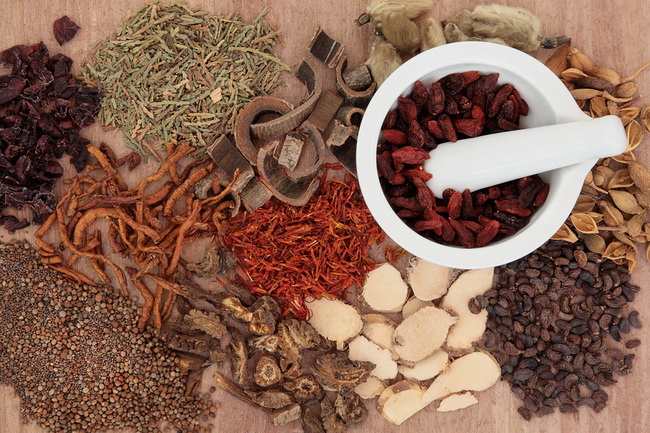- Make It Yourself Lavender Heart-Shaped Bath Bombs!
- 20 Things You Never Knew About “Down There”
- 12 Best Foods For Those Suffering From Arthritis Pain
- 12 Personal Hygiene Mistakes Almost Everyone Makes (Mom Never Told You About #4!)
- 15 Medicinal Plants And Herbs From The Cherokee People
- 12 Mind-Blowing Benefits Of Drinking Coconut Water During Pregnancy
- 12 Outstanding Winter Foods That Won’t Fatten You Up Like A Christmas Turkey
Top 12 Herbs to Kick Insomnia to the Curb

Photo credit: bigstock.com
Although almost everyone has a bad night every now and then, some people seem to have more difficulty sleeping than others. Of all the health problems concerning a lack of sleep, insomnia is perhaps the least researched, even though it the most common problem.
If you suffer from frequent bouts of insomnia, then you most likely also experience headaches, mood swings, fatigue, and lack of motivation. It’s hard to get up and get going when your body feels like it’s running through water. Insomnia is often caused by an imbalance of chemicals in the brain such as serotonin, which is vital for regulating our moods. Insomnia is estimated to affect about 30 percent of the population at one time or another.
Although many people turn to sleeping pills or alcohol to sleep, these can be addicting and dangerous, even deadly when combined. Scientific research shows that there are numerous natural herbal remedies for treating insomnia.
Try one of these 12 herbal remedies before you resort to chemical means that might only make your sleeping problems worse.
1. Kava Kava
Sometimes simply referred to as kava, this is the national drink of Fiji and very popular among the people of the South Seas. It leaves a feeling of calmness and relaxation in the body. It is said to even help with communication and improve dreams. This herb is often recommended for fatigue and sleeplessness. Drink 1 cup of kava kava (piper methysticum) tea two or three times per day, especially in the evenings.
2. Magnolia Bark
Magnolia bark is widely used in oriental medicine and is one of the most popular treatments for insomnia. Studies have even shown that magnolia bark is as much as 5 times more effective than valium in reducing anxiety levels. Feelings of anxiety are one of the main problems that provoke insomnia. Magnolia bark can calm down feelings of anxiety and help achieve better quality sleep.
3. Motherwort
Motherwort is a perennial plant that grows in North America, although it was originally indigenous to Europe and regions of Asia. Considered to have mild sedative compounds, it works as a natural relaxant. This herb has been used to promote heart health, reduce mood swings, and help alleviate the symptoms caused by menopause and childbirth. Scientists tell us that motherwort can relieve anxiety levels that are known to cause insomnia.
4. Wild Lettuce
Don’t think of iceberg lettuce, this isn’t in the same thing by a long shot. Wild lettuce (lactuca virosa) is often found in a variety of herbal tonics for the treatment of chronic insomnia. It has mild sedative and nervine compounds that are used for restlessness. Wild lettuce is so mild that it’s a good choice even for youngsters. In tincture form, take two or three eye droppers full 3 or 4 times per day. For children, cut this dose in half or even by one quarter.
Continue to Page 2




























